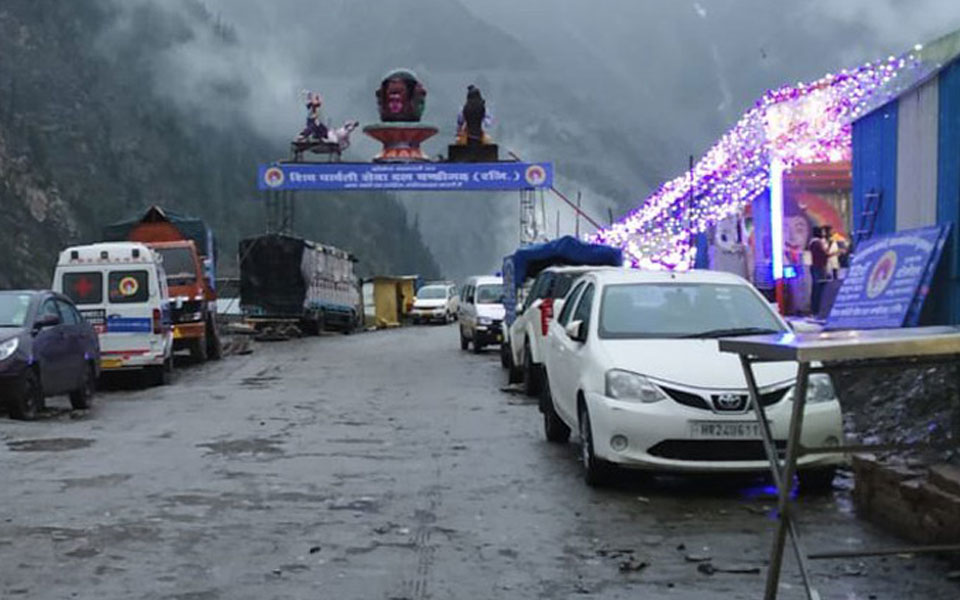Jammu/Srinagar, July 1 : The annual Amarnath Yatra resumed after three days on Sunday after pilgrims from the two base camps in the Kashmir Valley were permitted to move towards the cave shrine.
The pilgrimage was suspended due to incessant rains across Jammu and Kashmir.
A total of 6,877 pilgrims left Bhagwati Nagar Yatri Niwas in Jammu city in escorted convoys towards the the Baltal and Pahalgam base camps.
"The first group of 2,790 pilgrims bound for the Baltal base camp left at 3.10 a.m. in an escorted convoy of 99 vehicles," police said.
"A second group of 4,087 yatris at 3.50 a.m. left for Pahalgam in another escorted convoy of 130 vehicles."
Situated 12,756 feet above sea-level, the Himalayan cave shrine houses an ice stalagmite structure that waxes and wanes with the phases of moon.
Devotees believe the ice stalagmite structure symbolises mythical powers of Lord Shiva.
Let the Truth be known. If you read VB and like VB, please be a VB Supporter and Help us deliver the Truth to one and all.
Bengaluru (PTI): A 34-year-old mechanic has died after falling off a scooter on his way to a referral hospital, as the medical facility that diagnosed him to have suffered a heart attack did not provide necessary first aid, the family of the deceased claimed.
A CCTV video showing his injured wife pleading with passersby for help while her husband Venkataramanan lay on the road after falling from the two-wheeler on December 13 has gone viral recently.
According to the family, Venkataramanan complained of chest pain, and his wife Roopa rushed him on their scooter from their home in Balaji Nagar around 3.30 am to a private hospital where treatment was denied, citing the non-availability of a doctor, the family said.
Then, she took him to another hospital where ECG was done, which showed him to have suffered a heart attack. However they immediately referred him to the Jayadeva Institute of Cardiovascular Sciences. The family alleged that no basic treatment was provided there. On the way to Jayadeva hospital, Venkataramanan allegedly suffered chest pain again and the couple fell off the scooter, the family said.
In the CCTV video, injured Roopa can be seen pleading with passersby to help her husband reach the hospital, but no one responded until a cab driver stopped to check on them. With his help, she reached Jayadeva hospital, where doctors declared Venkataramanan brought dead, the family said. His family later donated his eyes.





